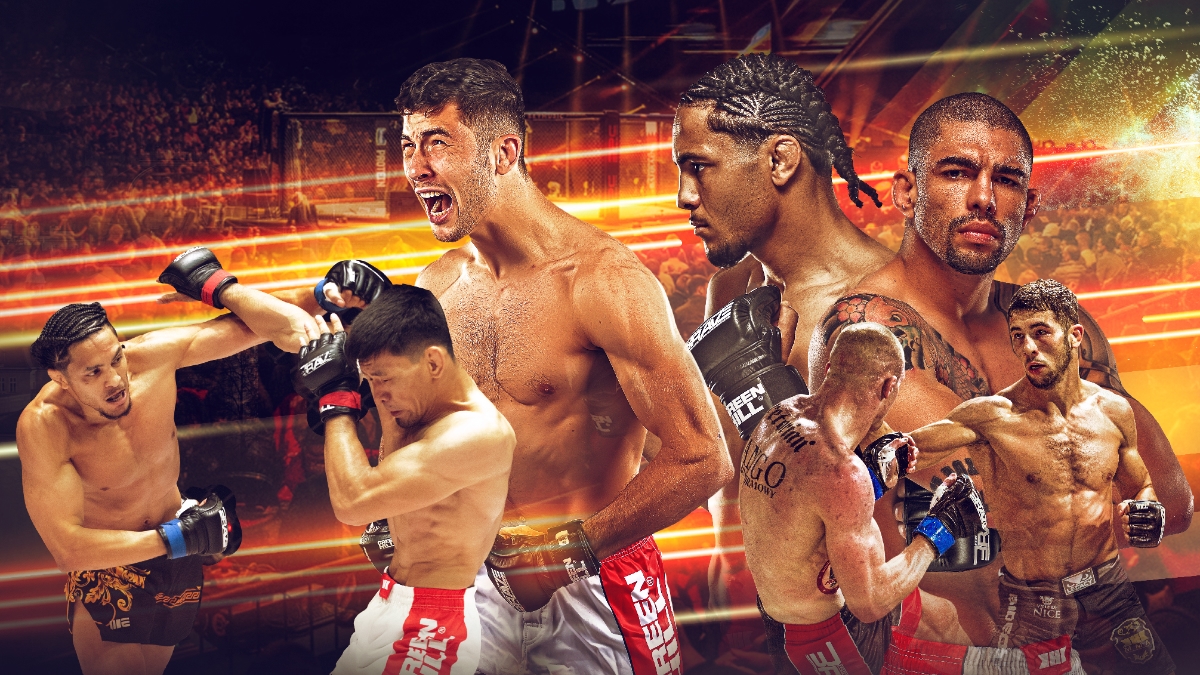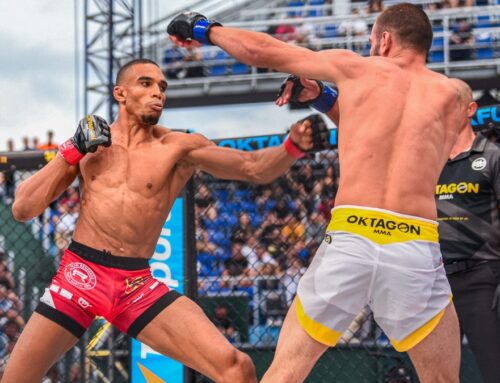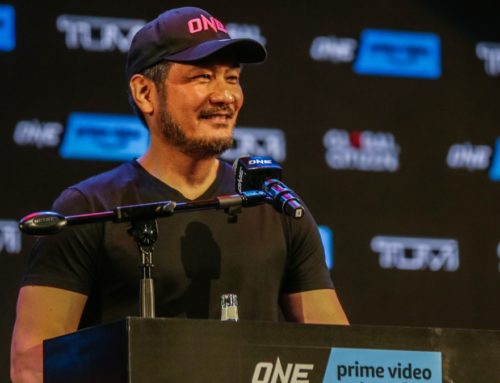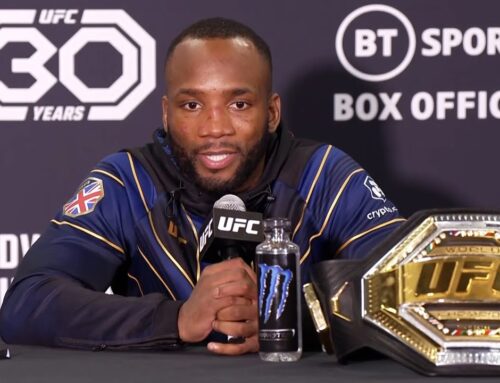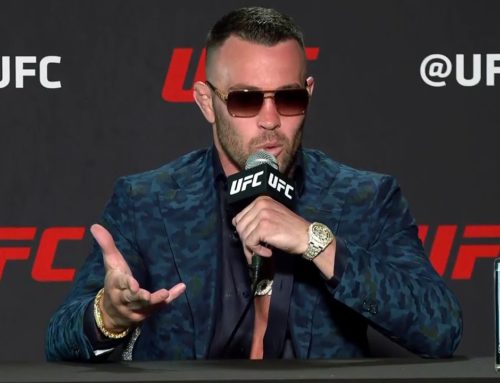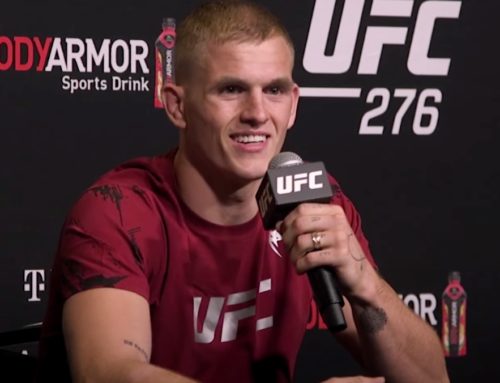On September 7, Hexagone MMA and Brave CF will join forces in Nantes to present some of the best athletes from both leagues. In addition to the 14 professional bouts across the Brave 74 x HXMMA 11 double-card, Hexagone MMA has revealed a bonus, amateur undercard.
Taking place at the 7,000-seater H Arena, the action will be broadcast live on TNT Sports in the UK and on DAZN internationally.
This seems fitting for an event that boasts former IMMAF Champion and No. 1 world-ranked amateur from France, Axel Sola, in a main card clash against another fighter with strong amateur pedigree, Ukrainian four-time Combat Sambo World Champion, Vladislav Rudniev.
Sola clocked up a record of 18 wins and 5 losses in the amateur ranks to win several IMMAF tournaments, including the 2018 European Championship and the 2019 Oceania and Pan-American games. He holds notable amateur victories over the likes of Issa Isakov, Murad Guseinov, Robin Roos, and Yann Liasse. Now fighting out of KHK Team Bahrain and Boxing Squad, he has remained unbeaten across his six professional fights to date.
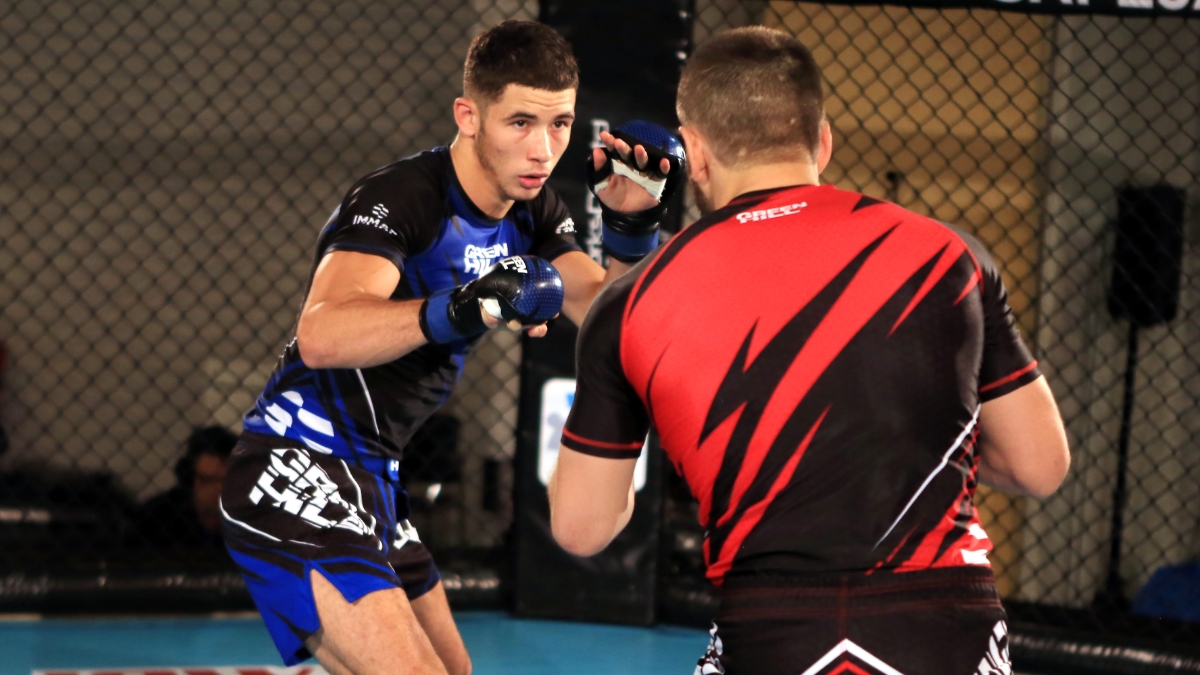
The event’s amateur theme does not stand in isolation: Both Brave CF and Hexagone MMA’s engagement with the developmental leagues supports a global trend, that has strengthened over the past ten years of commercial promoters supporting the structured honing of talent at the grassroots.
With all mixed martial events in France sanctioned and officiated by the French MMA Federation by law since 2020, the amateurs on the card will also be licensed by the national governing body. And so, regardless of the shifting, disunified global landscape, a formalized talent pathway is crystalizing in France.
As the upcoming French amateurs prepare to set foot in the cage in Nantes, in the wake of Sola Axel’s rise and this evolution in the sport, what are their career outlooks?
Dylan Hervouin, facing Malik Abdouraguimov in the third bout of the night, says that his plan is to continue to take advantage of the amateur circuit to accumulate maximal experience before turning pro.
“Obviously, I don’t want to lose! But defeat on the amateur circuit is much less problematic than a defeat at professional level. My goal is to become French champion, to be able to represent my country at the European Championships and World Championships. I’m also interested in the pro circuit, but I am giving myself time. MMA is sport in which it takes time to mature.”
National amateur bronze medallist Ferdinand Bretelle is another athlete pragmatically honing his fight dream among the amateurs whilst balancing his ambitions with other career options. The amateur platform has allowed him to put his talent to the test as early as possible. Ahead of his fight against Bafode Gassama in the second match of the night, the young Parisian reports that he is taking full advantage of the chance to develop without all the pressures that come with competing professionally.
“Obviously I want to try my luck as a professional, but you have to go slowly. Besides, I’m still in school. Studies come first: Sport is for my spare time.”
Fighting in the professional preliminaries, French athletes Thomas Glot and opponent Quentin Domergue also have reflections on the benefits that a prior amateur career has to offer.
Having started competing young, Glot extols his gains from competing on the amateur circuit. Indeed, as a member of the French national team, Glot was able to participate in the IMMAF European and World Championships, garnering valuable international experience.
“It allowed me to compete at a high level and make adjustments. At the time, I relied solely on my striking and I lacked wrestling skills. But I came across a Russian who dominated the fight, and I couldn’t do anything. So, we worked on that, and now, I would even say that wrestling is one of my strengths.”
Despite having ten years of MMA practice in the bag, Glot still says, “If I had known, I think I would have waited a little longer before going professional.”
This attitude marks a departure from the old-school way, as the younger generation born into MMA from the outset (as opposed to transitioning from traditional martial arts) see MMA as viable, albeit a risky career option. They are not just looking for a fight, or to clock up fast win records and injuries regionally only to fall in the bigger leagues. They are looking at the long game, and at the reality of funding their aspirations over time.
They indeed stand in contrast with the likes of Quentin Domergue, who viewing the scene as it now stands, cites it as a mistake that he launched himself into the professional leagues straight away.
“I started my career way too early. I had done just two years of MMA when my coach offered me a fight at professional level. I wasn’t ready, I should have tested myself on the amateur circuit.”
The result of this haste: Four consecutive defeats, and a career that could have ended at the end of 2018, before it had even really begun.
“In reality, the step-up was too high. I had never competed before, neither in MMA nor in any team sport. So, to find myself abroad, in a cage, in front of an audience… I couldn’t withstand the pressure; I didn’t have the mindset.”
But it is a credit to Domergue that he has arisen from these unsuccessful beginnings, and having taken four years away from competition to improve his craft, now returns to face Glot next week.
Providing snapshots from various points of the new MMA talent pathway in France, the HXMMA 11 X Brave CF 74 fight card reflects a cultural shift. The well-matched, elite amateurs opening the program contrast dramatically with the “white collar”-style opportunists and mismatches traditionally associated with regional undercards, and these guys promise to showcase a level of skill and professionalism that will engage fans from the night’s outset.

